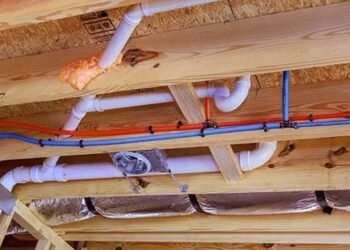Maintaining your roof is critical to protecting your home and ensuring its longevity. Over time, wear and tear, weather conditions, and aging materials can lead to roofing issues that require attention. However, deciding whether to repair or replace a roof is a question many homeowners face, and the right decision depends on various factors. We will explore the differences between dayton roof repair and replacements, the situations that call for each, and the long-term implications of your choice. By understanding these considerations, you can make an informed decision that best suits your home and budget.
Understanding the Scope of Roof Repairs
Roof repairs are often the go-to solution when issues are localized and manageable. Common problems like missing shingles, minor leaks, or damage from a storm can often be addressed through targeted repairs. This approach is particularly beneficial when your roof is relatively new, and the overall structure is still sound. For instance, replacing a few shingles or fixing a small leak can extend your roof’s lifespan without the cost and effort of a full replacement. Repairs can also help you address unexpected problems promptly, preventing them from escalating into more significant damage.
However, while repairs may seem quick, they are only sometimes the most cost-effective solution in the long run. If your roof has multiple problem areas or underlying issues like poor insulation, repairing one section may only be a temporary solution. Additionally, mismatched shingles or patchy repairs can impact the aesthetic appeal of your roof. Homeowners must carefully assess the damage’s severity, the roof’s age, and the likelihood of recurring problems before deciding to proceed with repairs.
Recognizing When Replacement Is Necessary
Sometimes, a full roof replacement becomes the more practical and economical choice. This is particularly true when the roof has reached the end of its lifespan, typically 20-30 years for asphalt shingles, depending on the quality of materials and maintenance. Older roofs often develop widespread issues like sagging, extensive leaks, or structural deterioration, making repairs increasingly ineffective. A replacement ensures that all problems are addressed immediately, providing a fresh start with durable materials that meet current standards.
Replacing a roof can also be an opportunity to improve your home’s energy efficiency and aesthetics. Newer roofing materials often have improved insulation properties, reducing energy bills and enhancing indoor comfort. Additionally, a new roof can add curb appeal and increase the resale value of your home, making it a worthwhile investment. While the upfront cost of a replacement is higher, the long-term savings and peace of mind can outweigh the expense. It is essential to weigh these benefits against the costs to determine if replacement is the right decision for your situation.
Factors Influencing the Decision Between Repairs and Replacement
Several factors influence whether to repair or replace a roof, and each homeowner’s situation is unique. One of the most significant considerations is the age of the roof. If your roof is nearing the end of its expected lifespan, replacing it may be more practical than investing in frequent repairs. Similarly, the extent and type of damage are critical factors. Isolated damage can often be repaired, but widespread issues or structural problems may necessitate a replacement.
Budget is another key consideration, as repairs are typically less expensive upfront than a full replacement. However, it is essential to consider long-term costs. Multiple repairs over several years can add up and may eventually exceed the cost of a replacement. Additionally, homeowners should evaluate their plans. If you plan to sell your home soon, a new roof can increase its market value and appeal to buyers. On the other hand, if you intend to stay in your home for many years, a replacement can provide long-term reliability and protection.
Long-Term Benefits of Proactive Roofing Decisions
Making the right decision for your roof requires a careful balance of cost, longevity, and functionality. Repairs can address immediate problems and extend the life of a newer roof, while replacements provide a comprehensive solution for aging or severely damaged roofs. Being proactive in maintaining your roof, addressing issues early, and consulting with reliable professionals can save you time and money in the long run. By considering the specific needs of your home and planning for the future, you can make an informed choice that protects your investment and ensures your family’s safety.
Deciding between roof repairs and replacement depends on factors such as your roof’s age, damage extent, budget, and long-term goals. Repairs are a practical solution for minor, localized issues, while replacement is often the best option for older roofs or widespread damage. Weighing the costs and benefits of each option can help you make the right decision for your home. By staying proactive and addressing roofing issues promptly, you can protect your home and enjoy peace of mind for years to come.












